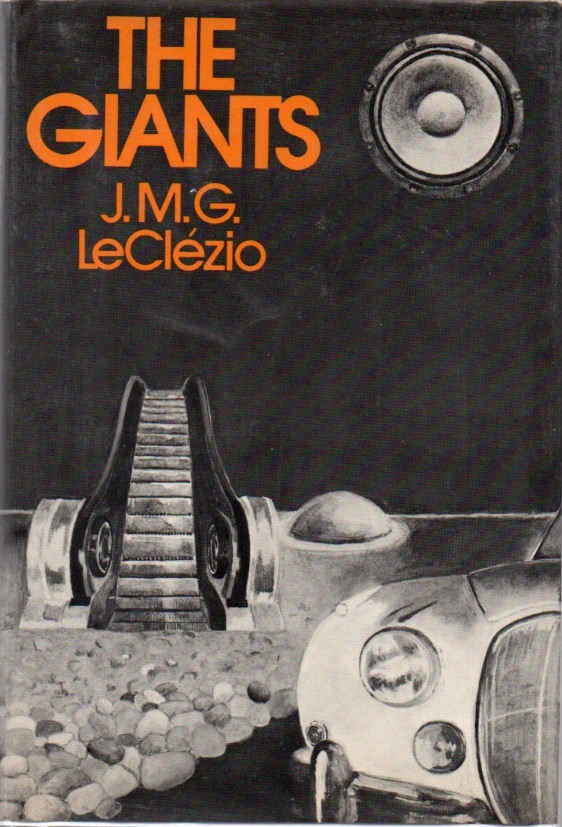
The Giants
J.M.G. Le Clézio
The world was not silent. It seemed so only because people were all talking about themselves and for themselves.
I wanted to tell you this, too: consciousness is a bad thing. Consciousness is a dead thing. Free yourselves from consciousness! It is high time. All that is needed is to strip off this garment: nothing very difficult about that. Tear the skin from your body, for it is not a true skin, it is a cellophane tissue that blocks the pores, that asphyxiates. Peel the tissue off, peel it off.
After that, they tell their life story, always the same story, of course, birth, experiences, amorous misadventures, jobs, old age, death. Or else they look at their stupid old yellowed photographs. [...] People really know a tremendous amount: they are fully conscious, aware. They possess about 126,402 words of French, 1,243 words of English, and eleven words of Italian. They have read books, they have listened to songs, they have watched films, they have looked at paintings and statues, they have skimmed throught magazines. They know why the wind blows, why the earth trembles, why the disquieting spots occasionally appear on the sun, and why man appeared on earth in succession to the marine jellies and the lizards and the grasshoppers. People know all that, and many other things besides. Meanwhile the cities expand and contract, and do not concern themselves with knowledge.
Free yourselves, let it be said once more, free yourselves from the Masters of language! But words betray; these creatures that speak on your behalf are destructive. It would be good to be able to think, to be happy, quite simply, alone, without witnesses. It would be good if thought was erect and speedy, travelling far through the air, reaching out to objects and planets and suns.
No one suspected. People talked, and imagined that talking made them free. But they did not know that the words of their own language were slain on the spot, and that all that the Masters returned to them were husks from which the juices had been sucked.
Listen, machines, I wanted to say this to you: help mel Wait! Slow down a little bit! Human beings are incompetent, feeble. They are pebbles. They hear nothing and learn nothing. Human beings turn into stones and the machines crush them. Human beings are the deafest and most inarticulate of all the animals on the face of the earth. Their ears and mouths are enclosed within them. Pebbles, too, are smooth and, as far as I can tell, their orifices are concealed. Men and women pay no attention to the sky that is approaching like a giant roller. What are they doing? They are speaking inside their bodies: their intestinal mouths emit a little gurgle, and their intestinal ears promptly pick up the sound. They never find out what is going on elsewhere, and they neither see nor hear anything that is going on around them. They are not interested. The only thing that interests them is making little gurgling noises with their guts, and listening to the results.
To be a beautiful machine one must first of all remove one's head. That is essential. One must get rid of all one's thoughts, all one's words, the whole garrulous pretentious structure.
It really feels good to be like a machine. When one is like a machine one genuinely knows life. One is in the centre of existence, neither ahead of it nor lagging behind. One no longer lives by means of thoughts and dreams and desires; one lives through life alone. One is a planet in empty space, revolving round the sun. One is - how to put it? — one is IMMENSELY BEAUTIFUL. That is how I would like to spend my time, if I had the time, if I was allowed the time: I would park myself on some road, in the sun, and be a machine. Or install myself in the middle of the desert of some wasteland. And I would make the engine in the middle of my body start turning with a gentle regular sound, rak-tak, rak-tak, rak-tak, rak-tak, rak-tak, rak-tak, rak-tak, rak-tak, rak-tak, rak-tak, tak, tak, rak-tak, rak-tak, rak-tak, tak, tak, tak.
What is so terrible is not consciousness itself, but what lies behind it. It is not spectacles and mirrors themselves that frighten and wound, but what exists on the far side of them.